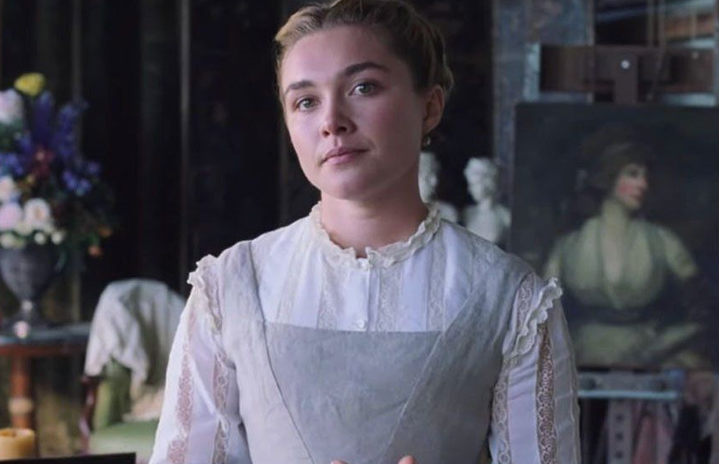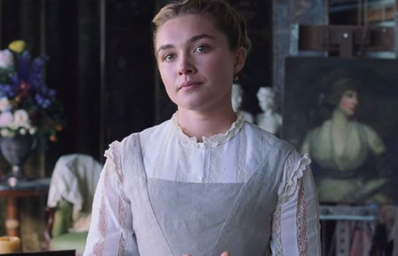Admittedly, I think about men a lot. I think about the way they conduct themselves–their mannerisms, the way they talk to women, the way they always seem to act so casually. I think about their internal monologues. In fact, I think about what they’re thinking more than I think about their character or their actions. Every few weeks, I realize that this obsession is not sustainable. When I’m with my straight, female friends, I make a mental catalog of how many hours we log on dating apps, try to analyze our individual “situationships,” or decide how to conduct ourselves based on the perceptions of men. This mentality is exhausting. We are, undeniably, “boy crazy.”
In order to wrap my head around this phenomenon–about the real reason we are so enthralled with men we might not even be concerned with if they did not perceive us–I asked my two close friends, M. and E., for their thoughts. I began with the question: how do you define boy crazy? E. described it as “Being so obsessed with guys that it becomes a distraction from your daily life–like a mental illness.” M. responded, “The feminine urge to have male attention or male validation.”
E.’s use of the term “mental illness” particularly resonated with me. It felt like the perfect descriptor. There is something so ridiculous, when I think about it objectively, about obsessing over my interactions with men until the moment I fall asleep, followed by checking my Snapchat for the potential of their attention when I wake up. When I asked my friends if they believe that they are boy crazy, as I most definitely am, M. said, “I consider myself boy crazy, but I am okay with that definition as long as I am giving it to myself. I would be uncomfortable if someone else called me that.” E. took a different approach by stating, “I am 100 percent boy crazy. In a lot of ways, it’s very difficult to be a woman without being as such because otherwise you have no other way to interact with men. It feels like they only value me in a sexual or romantic sense. If they didn’t, I would maybe never talk to them otherwise.”
These responses inspire interesting rhetoric about the way straight women see their relationships with men. M.’s statement reveals that there is a negative judgment casted onto women who want men to be a central role in their lives. We all retain some sense of awareness that we are consumed by men’s judgments and perceptions, and yet, we are resistant to the label that defines it. As women, we are told that there is more to life than boyfriends and flirtation, and yet, it feels as if the only reason that men entertain us is ultimately for some sexual or romantic gain. To explore this further, I asked my friends if they believe the term “girl crazy” has a similar connotation. E. said, “No. If I knew a man that was girl crazy, we would all either say he was a player or a ladies man, which is the classical take. But also, I would ask myself: what’s wrong with him? Is he a pervert? Societally, can you even be obsessed with women as a man without something being wrong with you?”
E.’s statement led me to conclude that there is something fundamentally wrong with the way in which so-called “boy crazy” women interact with men that is not inherent to the people we are. If men don’t think this way about women, then the only explanations are that women are obsessive in nature, which is a logical fallacy, or that the way in which men see women causes us to feel as if we need to constantly monitor our social standings with them. In response to the original statement, M. responded, “I genuinely cannot remember a time where that term has been placed upon a man in a negative way,” which reinforces the fact that the term girl crazy is either not commonly used derogatorily, or, that men simply do not feel a need to think about how women’s judgments affect their livelihoods.
This discussion reminded me of Margaret Atwood’s infamous quote about the male gaze from The Robber Bride. At the end of a passage describing the ever-present nature of male fantasies in women’s collective subconscious, she states “You are a woman with a man inside watching a woman. You are your own voyeur.” In order to introduce this idea to M. and E., I asked them if they regularly think about how men see them even when they are alone. E. said, “Absolutely I do. It’s sad I have to go about my day thinking ‘Is this attractive? Is this attractive?’ Because I am certain no man sits in his room thinking about how women see him. I wonder, how can I act so men desire me, but still respect me? I don’t know if there is a way to do that.” M. agreed, by stating, “Oh wow, yeah. Yeah, I do. I think there is a part of my subconscious that is narrated by a man. I feel like I am being constantly judged by them, when I’m in public or alone.”
My conversation led me to a few final conclusions. First, something that I already knew, which is that boy craziness is a pervasive and difficult lens to see the world through. Second, that the terminology itself is generally regarded derogatorily. But finally (and what I believe to be of the highest importance), is that boy craziness is a direct result of the way in which men interact with women. So the question we are left to ponder is, why is this the fault of the women affected by this figurative “mental illness”? Perhaps we need to reevaluate our definition of boy crazy. After all, if you felt as if you were being constantly surveilled, wouldn’t you be preoccupied with your viewer, as well?


